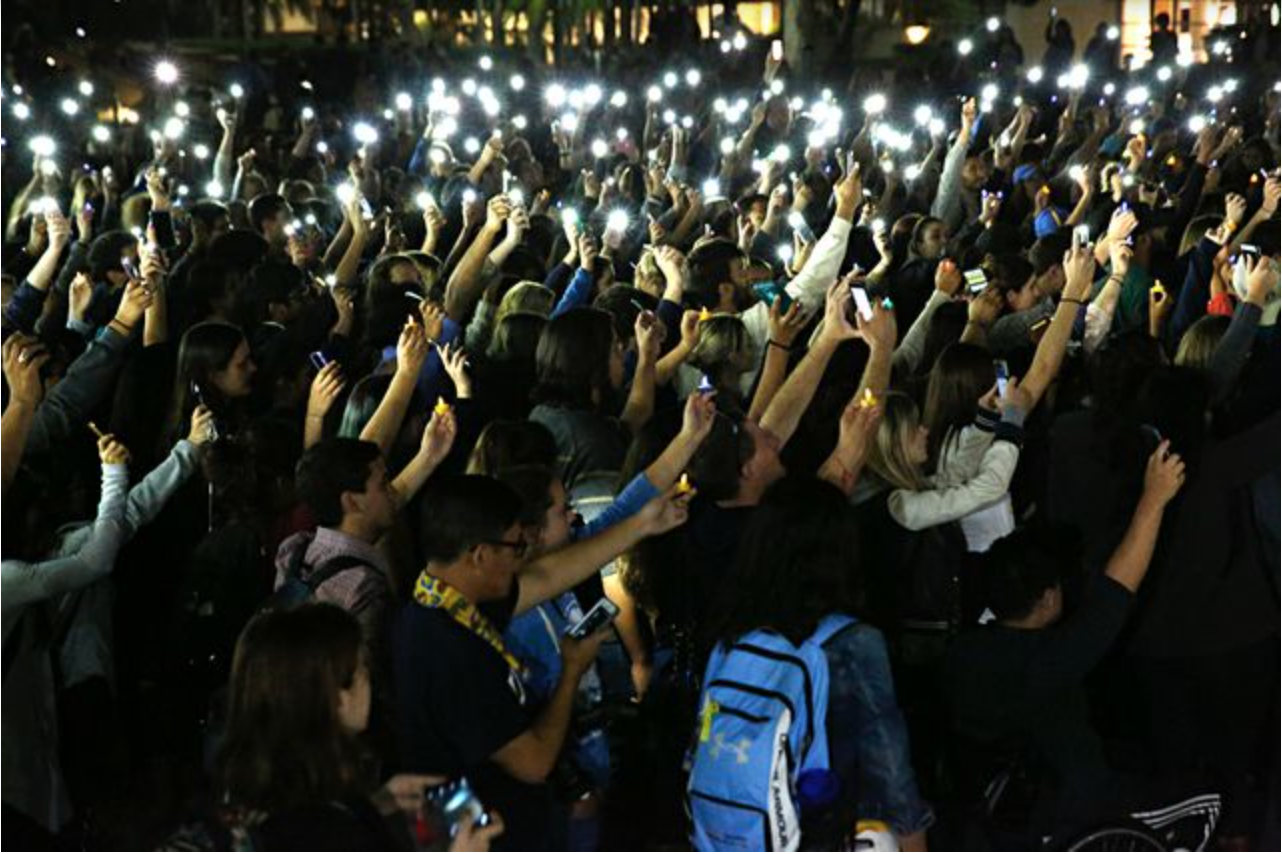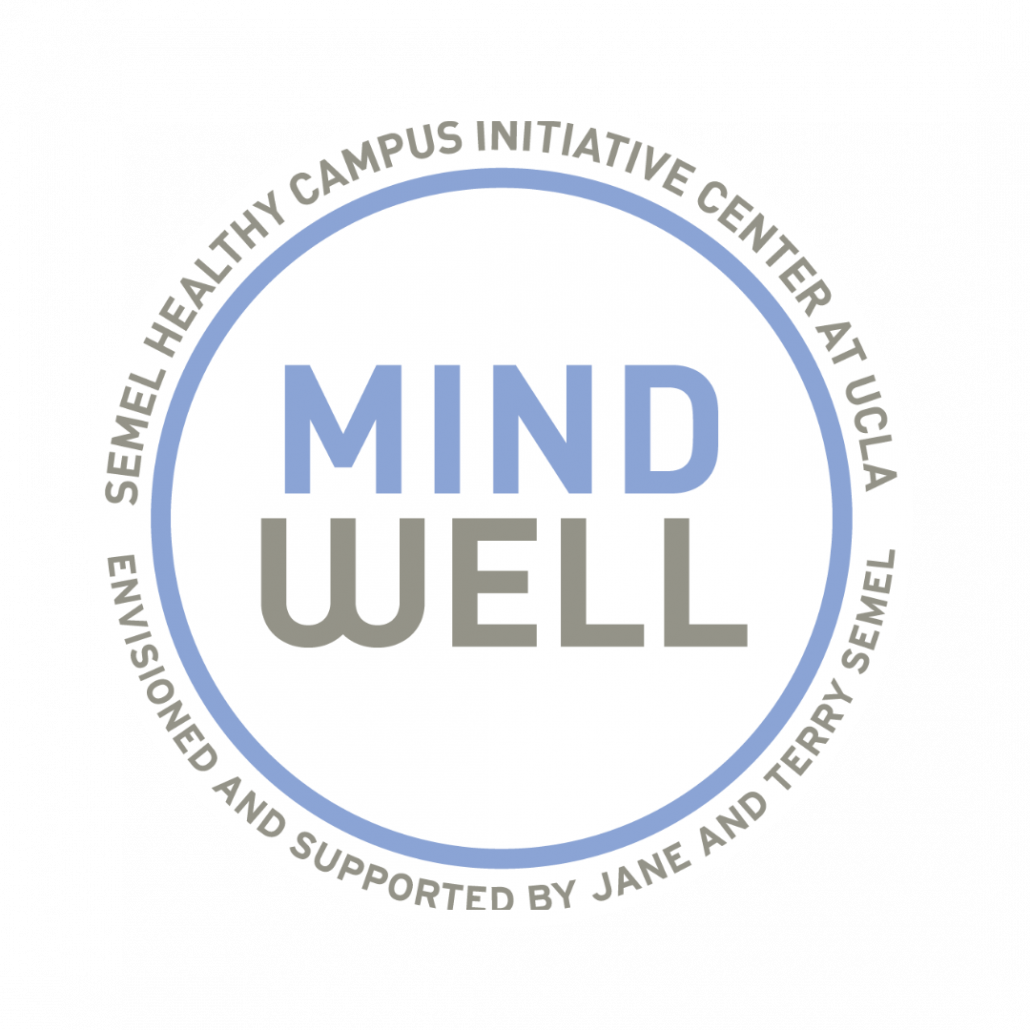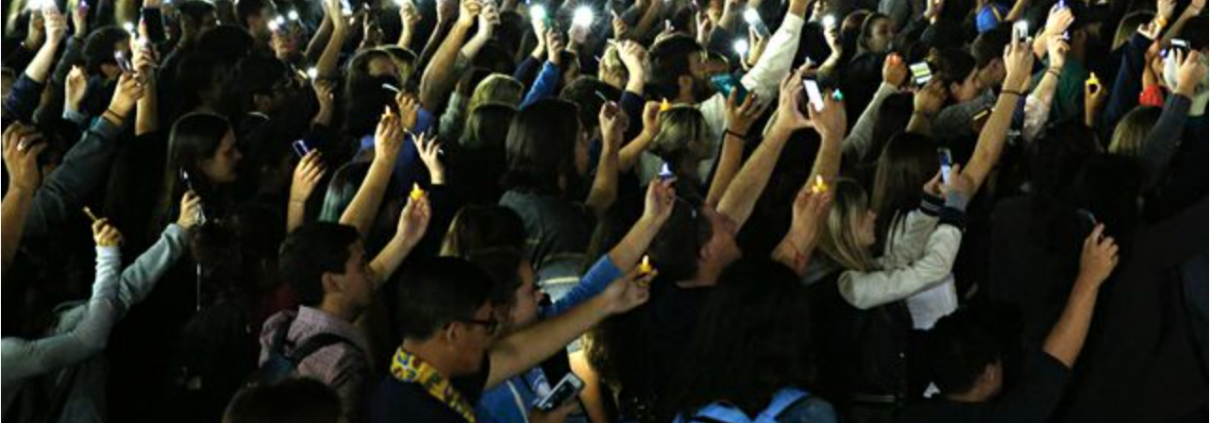Resilience in the Face of Tragedy
What can we do to heal from the events at UCLA on June 1? Our student body and facultyare already stretching themselves thin as we close out the final days of the Spring term and head into finals week. Executive Vice Chancellor and Provost Waugh, and Chancellor Block have publicized the availability of help for students at Counseling and Psychological Services (CAPS; 310-825-0768), and for staff and faculty at the Staff and Faculty Counseling Center (SFCC; 310-794-0245), and campus healing spaces have been organized.

Students and community members hold up LED lights at vigil for Professor William Klug. Image from UCLA Newsroom
A vigil organized by the UCLA Henry Samueli School of Engineering and Applied Science thatis open to campus and community will take place at 4 p.m. today in the UCLA Court of Sciences. We will post notices of upcoming special events related to this crisis on the Healthy Campus Initiative website as these become known. You may also review many other resources to support resilience and emotional well-being (healthy.ucla.edu/pod/mindwell).
Moving forward as a community, we need to recognize first that each of us experienced theevents differently, and we should expect a range of responses. Many on campus and in thesurrounding areas may have felt threatened, and those off campus watching the events unfold were alarmed. Not everyone will experience traumatic psychological responses, although many will. It is very important to know that there is no “right way” to cope. Some mayexperience distress in the immediate aftermath that can abate relatively quickly, while othersexperience symptoms that persist over time. These responses do not necessarily correlatewith how close you were to the event or how many people you knew who were there. Trauma exposure can impact our functioning, leading to thoughts and uncomfortable feelings that maynot go away immediately.
Some may find it helpful to express emotions. Talking about one’s fear, distress, and associated physical symptoms, may be healing. We can help one another by reaching out and offering support, and we can help ourselves by actively seeking connections to our friends and families. Listen to others without judgement and spend time with close others. We should anticipate that some members of our community will need more help, and help is available.
If you or someone you know needs it, please do whatever you can to learn about the effects of trauma and how we can guide others to take advantage of the resources (For students: http://www.studentincrisis.ucla.edu; For staff and faculty: https://www.chr.ucla.edu/behavioral-intervention-team).
We hope to move forward in closer empathic connection to one another, and invite you to share your ideas to help us enhance resilience (Email us at MindWell@ucla.edu). Through shared action, we can build a future where such tragedies become less common.
Robert M Bilder, Tennenbaum Professor of Psychiatry & Biobehavioral Sciences and Psychology, David Geffen School of Medicine and College of Letters & Science at UCLA. On behalf of the Mind Well pod, UCLA Healthy Campus Initiative



